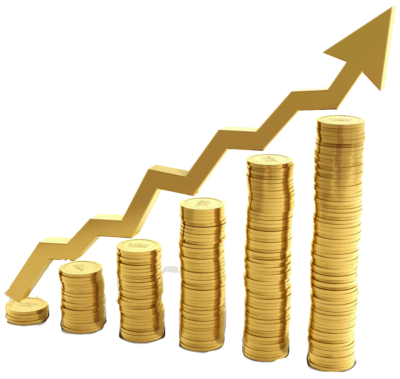When I first started investing, I was really attracted by stock dividends. Because in the past, that was the only way I knew how to create passive income.
It was easy for me to identify which companies will have sustainable dividends and I could simply buy these companies and hold for the long term, while collecting my passive income.
I typically identify these companies and buy them when they are at a valuation dividend yield of around 5% or higher.
Why I Stopped Investing In Dividend Stocks
When I met one of my investment mentors, I told him I was trying to build a dividend investment portfolio so that I could retire on dividends alone when I am 65.
He was shocked. He looked at me at disbelief as if I was doing something wrong.
He told me, "You are so young, why would you invest in dividend stocks?"

I was puzzled. I thought to myself, "Isn't that the whole point? To start investing when you are young and let the money compound itself?"
He then explained to me that the whole logic of why dividend companies pay dividends in the first place.
What's Wrong With Dividend-Paying Companies

Let's say you have a lemonade stand business on an island - and you started with $100.
You bought $100 worth of lemons and other things needed to run the business, you made $300 in return.
What would you do with the $200?
- Reinvest the whole $200 into the business and make $400, repeat the process, and eventually opening another lemonade stand on the island.
- Pay yourself $150 to reward yourself and reinvest just $50.
Well, if you want to grow your capital fast, you probably would choose the first option to reinvest in the business.
Why?
Because for every $1 you invest in the business, you get $3 in return.
And you continue building more and more lemonade stands.
However, down the road, as your business gets bigger and bigger, and you open more lemonade stands in the island, you realize that your business could no longer grow as much.
There was no more space for you open more lemonade stands and your business's earnings growth start to slow down.
At this point, there is little meaning for you to reinvest all your profits into the business, and you can simply start to pay yourself.
So why do companies pay out dividends?

The reason is simple.
It is simply because their businesses get mature, their earnings growth are slowing down.
So in order to continue to make their shares attractive - they start to pay out dividends to shareholders.
Okay, now that we understand that dividend-paying companies are usually mature companies.
But so what if they are mature? Does it not mean that they are more stable companies?
Yes, you are absolutely right - these companies are more mature and more stable. And for people who have retired and accumulate a sum of capital, it means sense for them to invest in these companies.
However, for those, who are young and starting with a smaller capital - it is far more better to focus investing on stocks that will grow in earnings - because these are the stocks that will grow your capital.
This is why my mentor told me to avoid investing in dividend stocks when I am young, as they are giving their profits as dividends rather than reinvesting in the business for growth - it also means their profits will not grow as much as it used to.
And as we all know, share prices eventually follow earnings.

So it makes much more sense for me to invest in companies with growing earnings.
In fact, Warren Buffett's company, Berkshire Hathaway, does not pay dividends simply because of this reason - the money is much better spent in Berkshire's business than giving out to shareholders. This way, it adds more value to long term shareholders.
So why do people invest in dividend companies?
One of the reasons is for passive income - people like the idea that they will still be getting cash flow even if the stock market is down.
And I had the same concerns when my mentor told me to stop investing for dividends.
Before I go on, I know that that are companies that are still growing, even though at a slower rate, and yet still able to pay dividends - that is great.
The key idea is this - I would invest in a company that is growing and if it does pay a dividend, I will take it as a bonus.

But I wouldn't invest in a company which is not growing its profits, simply because of dividends. However, there is one circumstance where I would invest in such companies, and I will share with you at the end of this blog post.
Dividend-paying companies tend to be more mature companies - and they tend to give away most of the earnings to their shareholders as dividends. Wait....isn't that a good thing? Be patient. Let me explain further.
When companies give out most of their dividends - it simply means that these companies have little money to invest in themselves and grow their profits.

A lot of people do not understand the stock market. When you buy a stock, you are a shareholder - this means you own a part of the business.
When a company grows in profit, the value of the business goes up. This means that your share has also increase in value.
However, in order for the company to grow in profits, the company has to reinvest their earnings into their own business. Dividend-paying companies which gives out most of their earnings as dividends, will not have much money left to reinvest into their business. When they are not able to reinvest, their business will not grow - and their share price tend not to grow as much as well.
This is why dividend paying companies such as AT&T and Coca Cola tend to have annualized returns much lesser than growth companies like Facebook or Amazon.
By investing in growth companies, we are able to grow our capital at an ideal return of more than 15% a year.
But Growth Companies Don't Give Me Dividends
Yes, I was hesitant to invest in growth companies as well, because they usually do not give dividends - my passive income.
Then, my mentor told me there is still a way to create passive income from these growth companies - and they are usually much more than dividends!
That is by using the power of options.
Now now, options can be complex beast - but it can be a very powerful tool to supercharge your investment portfolio.
In fact, when I first started, I was clueless about options as well, but as Warren Buffett said, "The more you learn, the more you earn".
To date, I have been creating cash flow month after month using the power of options.
If you are interested in learning about options - check out my video on, "Selling Put Options where I share how I model my investment portfolio like an insurance company"
Ever since I learnt about options - it became possible for me to invest in growth companies while still collecting passive cash flow every single month.
